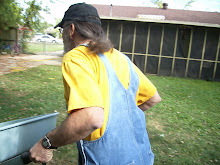The early morning summer sun shone warm upon Eleazar’s shoulders and gave the promise of a hot, sweltering day to come. But for now, he reflected, the sun’s rays promised life, as they warmed the earth and caused the crops to grow. He always waxed philosophic while tending his vineyard. The smell of the rich, fertile soil, the leaves of the grapevines rustling in the northerly breeze blowing across the hillside; all these took him away from the sights, sounds and smells of death to which he had grown accustomed on the battlefield. His life here in Bahurim with his wife and children was a good one. The fruit and the grain were harvested in their seasons. Naarah had borne their children in the time allotted for such things. Their oldest son, Ethan, was growing like a weed in a field of barley. All these things, he thought, are the things of life; not those deeds I do on the field of battle.
“Eleazar, my husband.” His wife’s voice seemed to him, in his contemplative state, like the sound of a mountain brook splashing across pebbles in its downward path; soothing and pleasant. He turned, and recognized, standing with her, Uriah the Hittite. Uriah had joined David at Ziklag, after serving as commander of a mercenary troop for the Philistines.
“Greetings, Uriah. Welcome.”
“Eleazar. Josheb told me I might find you in your vineyard.”
“Yes, when I’m not being a mighty warrior, I’m a mighty farmer in my spare time.”
Uriah offered a polite smile to show that he understood this was a joke. Sensing that his guest wished to speak of some matter that was troubling him, Eleazar became serious.
“Your pardon, my friend, for my rudeness. Come and share my noonday meal.”
Uriah accepted and in a short while, they were seated underneath the fig tree in the courtyard of Eleazar and Naarah’s home. Taking a drink of the wine Naarah had placed before them, Eleazar spoke first.
“I have not seen you in Jerusalem, what little I’ve been there. Has the king posted you to some border outpost, perhaps?”
“In truth, I have taken a wife, nearly six months ago and the king excused me from active service for a time,” Uriah replied.
“I see. With Jerusalem taken and the Philistines cowed, it may be a while before any of us sees active service. I suppose it is well that I get used to tending my vineyard and sowing and reaping my grain.”
“True. Honestly, I welcome a respite from constant warfare.” Uriah smiled. “It seems, sometimes, as though I was born on a battlefield and have lived my life there.”
“I certainly share those sentiments. Most of us do. It is good, I think, that we have these feelings. I have known men who could not get enough of the killing.”
“And I. Now is the time, I hope, to focus our energies on life, instead of death.”
“That is my prayer, also,” responded Eleazar. “Have you and your wife a little one on the way?” Uriah’s countenance clouded, and Eleazar regretted the question.
“No,” Uriah spoke thoughtfully. “I wonder, sometimes, if because I’ve taken many lives, the LORD withholds life from my wife’s womb.” Uriah’s voice was troubled, as if he had pondered this matter much, and Eleazar’s heart went out to him.
“Yet, you would not refuse the LORD the use of your sword in smiting his enemies?”
“Surely the arm of the LORD is long enough to smite His enemies without the use of my sword.”
“You remind me of something I was once told by my kinsman, Jonathan, whose armor bearer I was.”
“You speak of the son of Saul?” Uriah asked.
“Yes. He said that God works through men, both good and evil, to accomplish His purposes. We Israelites believe in God’s destiny for our nation.”
“Certainly, God chose Abraham and his descendants as the people of Promise,” Uriah agreed, “but we are all God’s are we not?”
“All who worship Him and call on His Name,” replied Eleazar.
“Lord, Lord,” said Uriah, smiling.
“ ‘Who call earnestly upon Him,’” Eleazar amended, “and seek Him and His will in their lives.”
“Yet, I, a Hittite, a foreigner, if you will, believe that God chose me and called me here; though for what purpose, I know not. Do you believe this?”
“I have seen many unlikely things, both on the battlefield and elsewhere, that can only be of God. Yes, I believe that all men must heed God’s calling,” said Eleazar, then added with a grin, “Even Hittites.”
The mood lightened after that, and the two men reminisced on the wild days with David at Ziklag and in the service of the Philistines. Eleazar reflected that they had many things in common; had made their beds in the valley of death, had dwelt in a place where a man becomes one with his weapon, and steps outside himself to do battle. Battle; the terrifying, exhilarating, stomach-churning maelstrom of screaming, striving, bleeding, dying confusion. Yes, he thought, some became addicted to it and sickened and died when peace came and they could no longer go to war. But not me. Thanks be to God, not me.
As the day waned, Uriah departed, and Naarah came and sat beside her husband in the shade of the courtyard wall. During their time together, he had shared many of the thoughts with her that he had expressed to Uriah. She thanked God for this man of hers, as they sat, holding hands in the peaceful silence of the approaching dusk. Naarah was proud that Eleazar was one of the mighty ones who served the LORD God of Israel and his anointed king. But she was aware, as well, of a tender heart within the warrior’s breast and for this also, Naarah was grateful.
Subscribe to:
Post Comments (Atom)

No comments:
Post a Comment